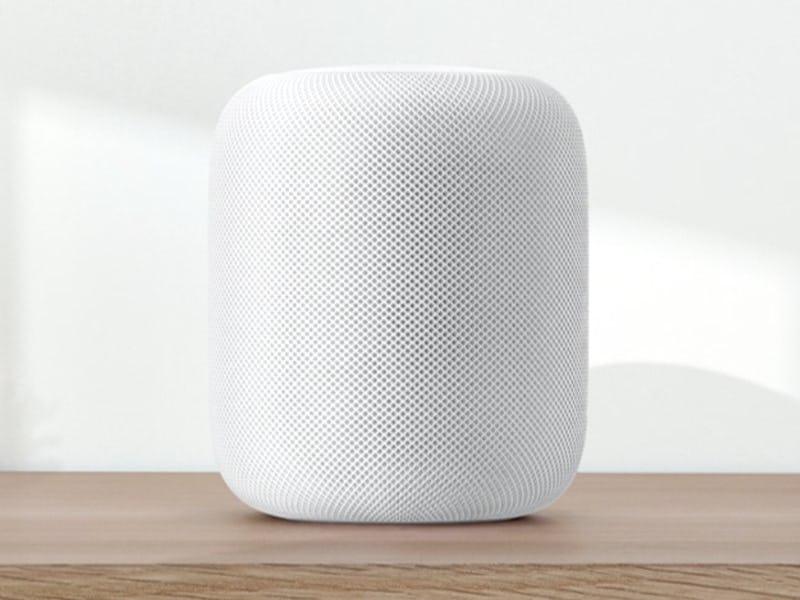
Apple is taking Amazon head on for living room dominance. At the Worldwide Developers’ Conference on Monday, the company announced the HomePod, a smart speaker pod set to rival Amazon Echo with a focus on high quality audio.
“Just like the iPod reinvented music in our pocket, HomePod is going to reinvent music in our homes,” Phil Schiller, Apple’s senior vice president of Worldwide Marketing, said during the event.
The $349 device is set to launch this December in the United States, United Kingdom and Australia, with other countries receiving the speaker next year. It’s a fair bit costlier than the $179 Echo, but Apple has the advantage of years of experience perfecting the Siri voice assistant that launched in 2011. Alexa, the Echo’s assistant, launched just two years, but it’s already grown into an impressive competitor to Siri.
Nonetheless, the HomePod could have the advantage. During Monday’s keynote address, Apple listed three points of focus during HomePod’s development. The Echo was not mentioned by name, but it’s clear these three areas are gaps in the market that Apple has identified. Here are three reasons why the HomePod could come out on top:
It “rocks the house”
Cringe-inducing terminology aside, the HomePod is expected to sound great. It has a seven beam-forming tweeter array with individual drivers, precision acoustic horns, coupled with an Apple-designed woofer and automatic bass equalizer. In other words, it has a lot of audio equipment driving the sound, and the focus will be on providing a good quality music experience rather than simply making the A.I. assistant’s voice just about understandable.
HomePod in black.
It’s spacially aware
When plugged in, the speaker detects the shape of the room it’s in and uses the information to intelligently shape the sound. When placed near a wall, the speaker will bounce acoustic sounds off the wall and channel vocals forward, providing a clearer voice. When multiple HomePods are placed together, they will work together to avoid clashing.
It’s a musicologist
The speaker is powered by an Apple A8 chip, the same one found in the iPhone 6. It has a six-microphone array to allow users to invoke the assistant by saying “hey Siri.” Although Apple announced an expanded version of Siri for iOS at the conference, it seems the HomePod offers a smaller selection of commands more relevant to the situation.
HomePod also works with Apple Music, the Spotify rival built from the previous Beats Music service. This allows for commands like “play the top song from May 1, 2006,” where HomePod will retrieve the song and play it immediately.